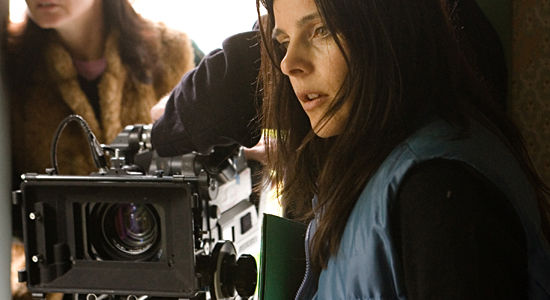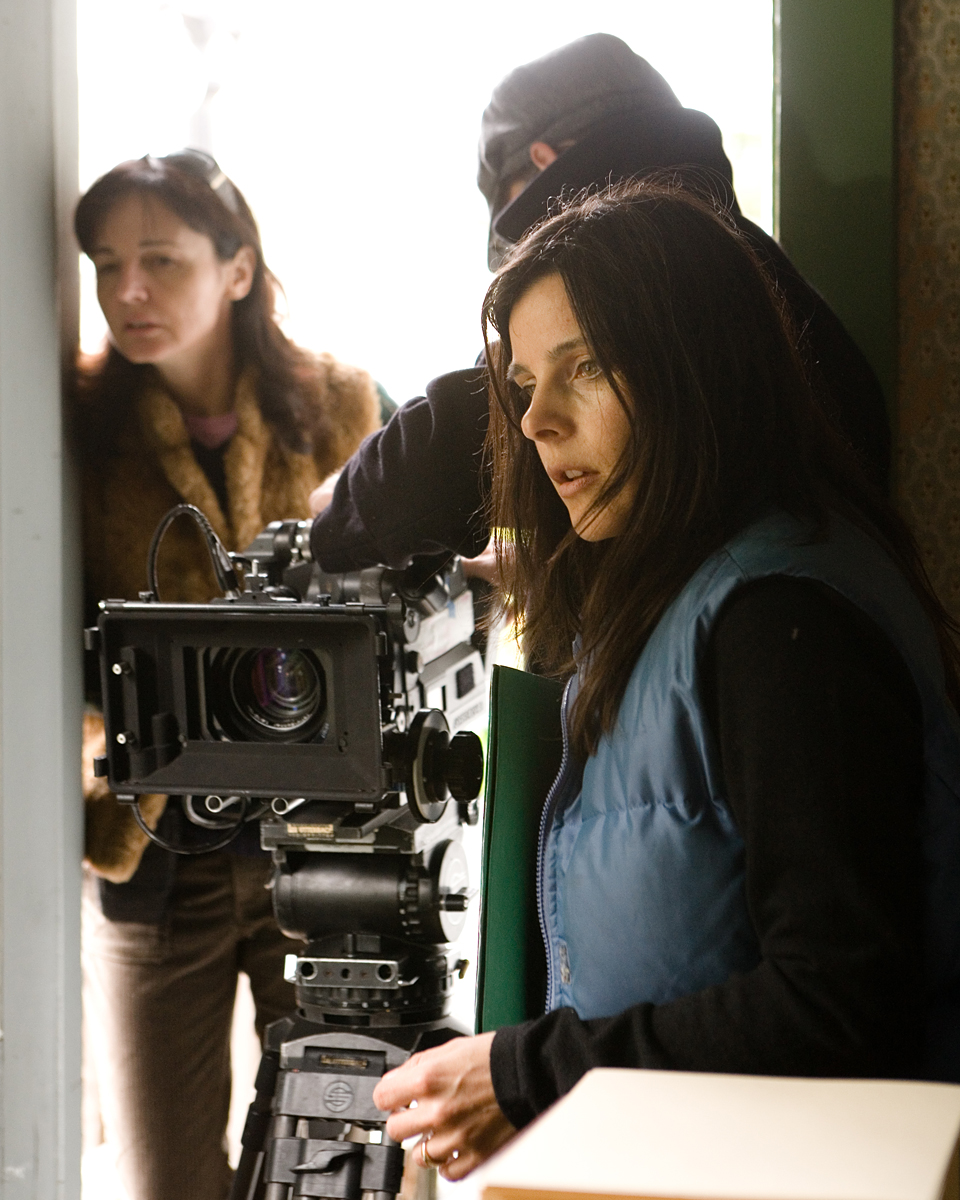Story by Kevin Baird
Photo as noted
Before stepping into the Bijou Arts Cinemas to see the movie Opal, I had no idea who Opal Whiteley actually was. Soon enough, however, I learned this young woman who called Cottage Grove home at the start of the twentieth century had quite the mysterious history. Known for her nature writing, Whiteley became famous with the publication of her childhood diary. This and the ups and downs following her fame are the story writer and director Dina Ciraulo hoped to capture in Opal. Ciraulo sat down with Ethos to discuss the movie currently making an encore apperance at the Bijou through Saturday, April 16.
Kevin Baird: What do you think of the turnout at the showings of Opal at the Bijou?
Dina Ciraulo: We were kind of blown away by how big the response was. I was just hoping that somebody would show up. [The first night] it was raining and I was worried nobody would show up at all. The whole lobby was at the Bijou was packed a full thirty minutes before it even started and there was a line down the block and around the corner. I was totally blown away in such a great way. It was so inspiring to be there.
KB: Why do you think Eugene produced such a good turnout?
DC: [Opal Whiteley] went through the UO so she lived in Eugene for a while. She’s from Cottage Grove, which is a mere twenty-five minutes away. So Eugene and Cottage Grove are ground zero for Opal information and Opal fans. In fact, when I was doing research about her I felt like I had to go to Eugene just to get a picture of who she was and what her life was all about. I went to the special collections at the University that has all her papers and some of her personal effects and her writings. Eugene is where the bulk of people who know her would be located.
KB: How many films have you done before?
DC: This is my first feature film. I have made a handful of short films before. They’ve all been a little bit experimental and a little bit narrative. I’m kind of drawn to that overlap of kind of poetic, kind of narrative, slightly experimental work and that’s what you see in Opal. It almost has a slightly collagey feeling with a lot of different styles. Old technology and new technology are all kind of blended together.
KB: You won a Robin Eickman Screenwriting Award for Opal. What does this award look for and what does it mean to you?
DC: Robin Eickman was a film commissioner in San Francisco and she did a lot for the film community [before passing] away so tragically at a young age. [The award] is given by the Film Art Foundation, and they have joined forces with the San Francisco Film Society. The fact that I am recognized, the film was recognized, my screenplay was recognized by the main organization that supports independent film makers in San Francisco—that felt really good. That made me feel that I was more or less on the right track. And the other thing that was great about it was that it came with a little bit of money. Not a lot of money but a little money, and I needed that.
KB: How did you get into filmmaking?
DC: I started being interested from a film history point-of-view. I was taking film history classes. I was sitting in the theatre watching a film that blew me away, and I had this aha-moment, “Oh! I want to make films. I don’t want to just study films. I wanna actually make them.” I started by volunteering for anything I could find. There would be a commercial shooting. I would show up at six in the morning. I’d be the first person there with donuts, making coffee, and sweeping the floors, and picking up all the garbage. I did that for a couple years, working for whatever I could find. Then I ended up applying for film school at San Francisco State University.
I felt lucky that when I was involved in film. Whether it was my film or someone else’s film I felt like there was nowhere else I’d rather be. I felt really at home.
KB: Do you have any advice for up-and-coming filmmakers?
DC: Don’t overthink it. Just jump in. Don’t wait for the perfect circumstances. Don’t wait for anything. Just do. Work on other people’s films. Get together with your friends and make your own films. Say ‘yes’ to everything and keep doing it. The more you do it, the better you get at it and the easier it becomes. I think a lot of people hold back and wait for the stars to align before they follow their dream. You can waste a lot of time that way. Don’t be too picky. Don’t worry about getting paid and try to have fun.
KB: What kind of challenges are involved in making a film like Opal?
DC: The lack of money. What I thought was going to take us a year to make ended up taking four years. Everything was more expensive and bigger and harder than I thought. Without any money everything takes longer. You just have to work harder. It doesn’t mean you can’t do it. It just means you have to work harder. It also means you have to compromise on things. You get really creative that way. We just figure out what to do with what you have.
KB: Opal was filled with beautiful and sometimes surreal nature shots. What were you hoping these shots would do for your film? In what way were you hoping they would influence your audience?
DC: I wanted the nature to be beautiful because I wanted people to see it the way Opal would have saw it. Opal experienced it as something alive and beautiful. I wanted people to look at it and see it through her eyes. I love nature myself and that’s one of the ways I connect with Opal.
KB: What was the most challenging part of piecing together Opal Whiteley’s character for film?
DC: Her story is really complicated. There’s this whole controversy about her birth, who she is, what her identity is, how much of what she said was true, how much of it is not true. Then all the activities that she did—from the lecturing as a young woman to the writing of the first book The Fairyland to the serializing in The Atlantic and all her travels after that.
It’s so much information and some of it’s a little contradictory. The hardest thing was to narrow it all down and present her life to somebody who knew nothing about her and still have it be understandable. Opal fans will look at it and they’ll know all the things that are in the film. And they’ll know all the places where I’ve fictionalized. That’s fine. It’s great that they can connect with the film, but I was trying to reach an audience who knew nothing about her and make the story really accessible. That was really hard too because of so much information.
KB: Final thoughts?
DC: I hope the Eugene community embraces the film because this is one of their own. I really tried very hard to make a film that would make her proud, and people who knew about her proud, and even people who didn’t know about her proud. She’s almost been forgotten by history. I felt her whole story should be dusted off and brought to life.
Categories:
Dina Ciraulo, Indie Filmmaker Discusses ‘Opal’
April 13, 2011

Dina Ciraulo, Indie Filmmaker Discusses ‘Opal’
0
Donate to Ethos
Your donation will support the student journalists of University of Oregon - Ethos. Your contribution will allow us to purchase equipment and cover our annual website hosting costs.








